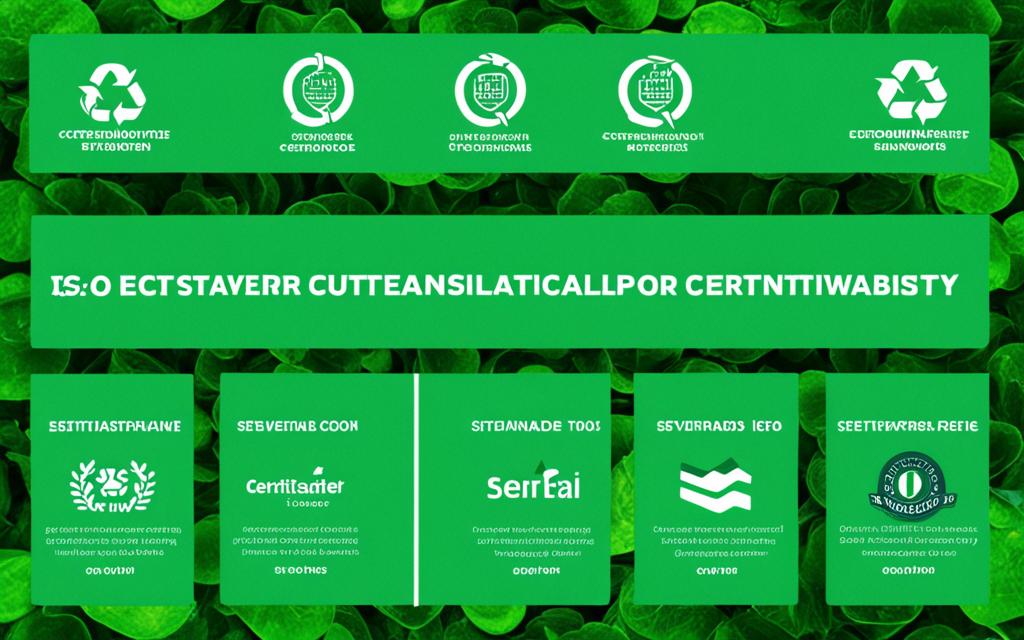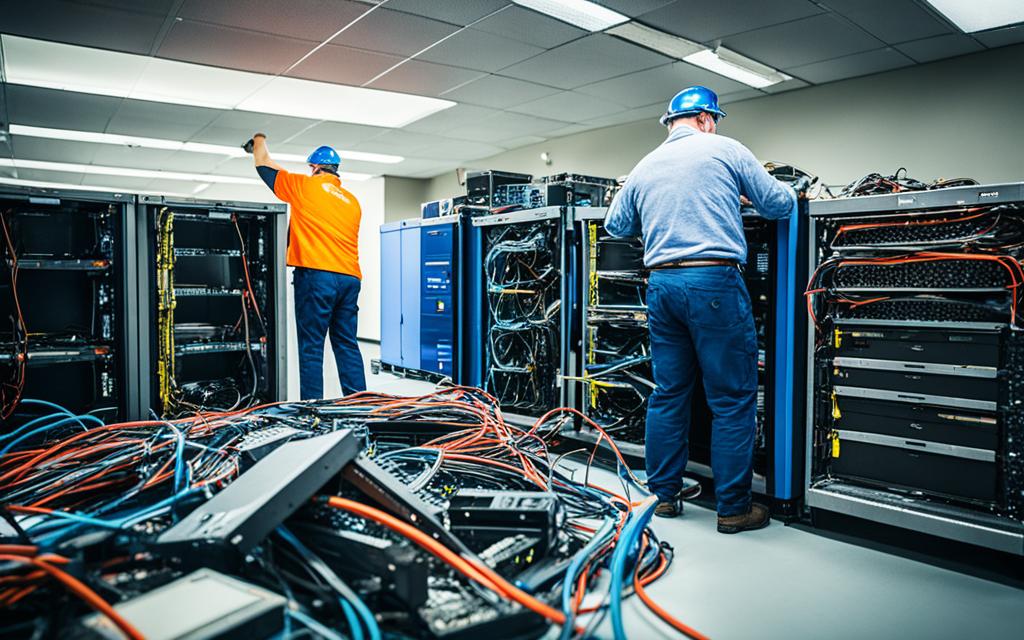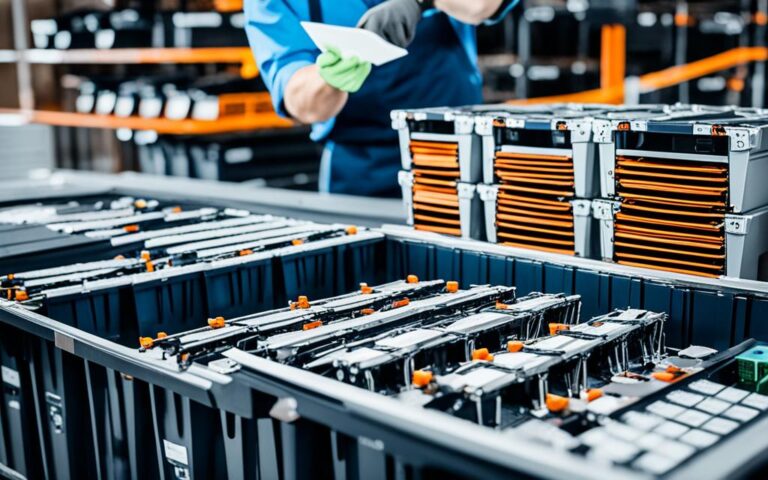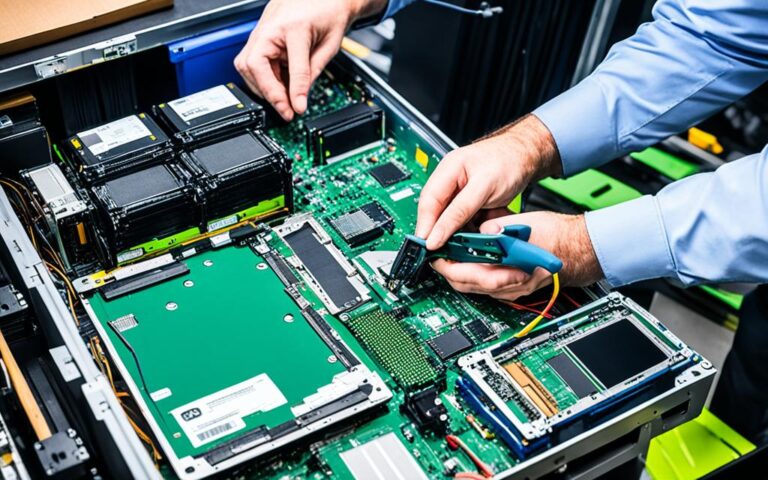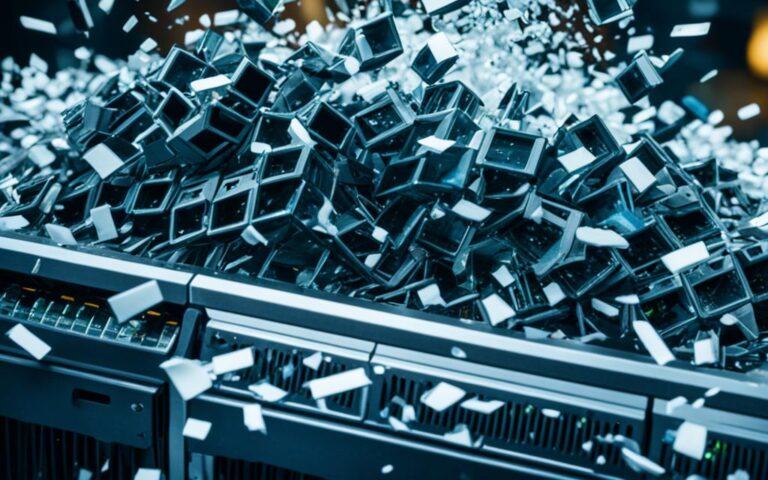Implementing a Server Recycling Program: Lessons from Leading Companies
In today’s digital age, businesses and institutions constantly upgrade their IT infrastructure to keep up with technological advancements. As a result, the need for proper server recycling has become increasingly important. Organizations must not only protect sensitive data and ensure legal compliance but also take responsibility for their environmental impact.
Implementing a server recycling program is a crucial step towards achieving these goals. By securely erasing data, breaking down servers into component parts, and responsibly reusing or recycling those components, businesses can prolong the server lifecycle and reduce electronic waste. Furthermore, adopting best practices in server disposal enhances the organization’s reputation as a responsible corporate citizen.
In this article, we will explore the lessons learned from leading companies in the field of server recycling. We will examine their strategies, challenges faced, and the benefits they have experienced. By understanding the experiences of these companies, businesses of all sizes can gain valuable insights into developing their own successful server recycling programs.
The Importance of Server Disposal and Environmental Impact
Improper server disposal can have significant consequences, including data breaches, damage to reputation, and environmental hazards. Servers often store sensitive and confidential data, which makes secure disposal essential. Adopting responsible server recycling practices can help prevent toxic components from ending up in landfills, thus reducing the environmental impact of electronic waste.
By recycling servers, valuable materials such as metals can be extracted and reused, conserving resources and minimizing the negative imprint on the environment. It is crucial for organizations to understand the environmental impact of server disposal and the importance of adopting sustainable practices to minimize harm. Server recycling is not just an ethical choice; it is also a practical way to contribute to a greener future.
“The environmental impact of server disposal cannot be underestimated. It is our responsibility as organizations to ensure that we dispose of servers properly, minimizing the negative effects on the environment and protecting sensitive data.” – Sarah Jenkins, IT Director
The Need for Secure Server Disposal
Servers house vast amounts of valuable and sensitive information, including financial data, customer details, and proprietary business information. Failing to dispose of servers securely puts this data at risk of falling into the wrong hands and can lead to severe consequences, such as data breaches and legal penalties.
Secure server disposal involves not only physically destroying the hardware but also ensuring complete data erasure. By using reputable data wiping methods, organizations can ensure that all data is permanently removed, minimizing the risk of data breaches and potential legal implications.
The Environmental Impact of Server Disposal
Electronic waste, including discarded servers, can pose significant environmental risks if not properly recycled. Servers often contain hazardous substances that can contaminate soil, water, and air when left to decompose in landfills. These substances include lead, mercury, and cadmium, which can have long-lasting negative effects on ecosystems and human health.
Responsible server recycling aims to prevent these hazardous materials from entering the environment. By extracting valuable materials from servers, such as metals or plastics, recycling reduces the need for virgin resources, conserving energy and minimizing the environmental footprint.
Adopting sustainable practices in server disposal not only protects sensitive data but also contributes to environmental preservation. It aligns organizations with regulatory requirements and demonstrates a commitment to corporate social responsibility.
| Environmental Impact | Proper Server Disposal | Improper Server Disposal |
|---|---|---|
| Prevents hazardous substances from polluting the environment | Yes | No |
| Reduces electronic waste | Yes | No |
| Conserves resources through material extraction and reuse | Yes | No |
| Minimizes the negative impact on ecosystems and human health | Yes | No |
Implementing proper server disposal practices not only safeguards sensitive data but also demonstrates a commitment to protecting the environment. By responsibly recycling servers, organizations can play their part in creating a sustainable future.
Understanding the Basics of Server Recycle
Server recycling plays a crucial role in protecting sensitive data, reducing electronic waste, and maximizing the utilization of valuable materials. To ensure effective server disposal, it is important to understand the basics of server recycling and follow a step-by-step guide. Let’s explore the key elements of server recycling and how they contribute to a sustainable IT ecosystem.
The Goals of Server Recycling
The primary goals of server recycling include:
- Protecting sensitive data: Erasing data securely is essential to prevent data breaches and safeguard sensitive information.
- Reducing e-waste: Proper recycling of servers ensures that they do not end up in landfills, minimizing the environmental impact of electronic waste.
- Extending the lifecycle of valuable materials: By breaking down servers into component parts, valuable materials like metals can be reused or recycled, conserving resources and minimizing waste.
Recognizing the common materials found in servers is crucial to ensure proper recycling and directed end-use. Some of these materials include metals, plastics, and hazardous substances like lead and mercury.
A Step-by-Step Guide to Effective Server Disposal
Following a step-by-step approach ensures that server disposal is conducted in a secure and sustainable manner. Here is a guide to effective server disposal:
- Data backup: Before recycling servers, it is essential to back up any important data to ensure it is not lost during the recycling process.
- Data wiping: Securely erase all data from the servers to protect sensitive information from falling into the wrong hands.
- Choosing the right disposal method: Evaluate different disposal methods, such as reuse or recycling, based on the condition of the servers and the specific requirements of the organization.
- Working with certified recycling facilities: Collaborate with certified recycling facilities that adhere to proper environmental and data security practices. This ensures that the recycling process is conducted responsibly and in compliance with regulations.
Implementing these steps enables organizations to prioritize data security, minimize electronic waste, and responsibly manage valuable server materials.
“Proper server recycling helps protect sensitive data, reduce e-waste, and extend the lifecycle of valuable materials.”
| Benefits of Understanding the Basics of Server Recycle | Impact |
|---|---|
| Enhanced Data Security | Prevents data breaches and protects sensitive information from falling into the wrong hands. |
| Environmental Sustainability | Reduces electronic waste and the negative impact of improper server disposal on the environment. |
| Resource Efficiency | Maximizes the utilization of valuable materials by reusing or recycling server components. |
| Legal Compliance | Ensures adherence to regulations and avoids legal consequences associated with improper disposal. |
By understanding the basics of server recycle and following best practices, organizations can contribute to a greener future while ensuring data security and compliance. The next section will explore the specific benefits of proper server recycle practices.
Benefits of Proper Server Recycle Practices
Proper server recycling practices offer numerous benefits to organisations. By recycling servers, businesses can maximise their resource efficiency, reduce electronic waste, and contribute to environmental sustainability. But the advantages don’t stop there.
1. Prolongs server lifecycle: Recycling servers allows organisations to extend the useful life of these valuable IT assets. Instead of disposing of servers prematurely, recycling enables components to be reused or refurbished, resulting in cost savings and reduced environmental impact.
2. Maximises resource efficiency: Server recycle practices help maximise the use of finite resources. By reusing valuable components or recovering metals, organisations can reduce the need for raw materials and minimise resource exploitation, promoting a circular economy.
3. Reduces electronic waste: E-waste, including discarded servers, poses a significant environmental challenge. By recycling servers, organisations can divert electronic waste from landfills and reduce the pollution and potential hazards associated with improper disposal.
4. Economic advantages: Proper server recycling can have economic benefits for businesses. Valuable materials, such as precious metals or high-performance components, can be recovered and sold, generating additional revenue or offsetting the cost of server upgrades or replacements.
5. Minimises waste disposal costs: By recycling servers, organisations can minimise the costs associated with waste disposal. Disposing of servers in regular waste streams or storing outdated equipment can be expensive. Proper recycling practices help reduce these costs and free up valuable storage space.
6. Data protection and compliance: Responsible server recycling practices ensure the secure disposal of sensitive data. By following industry best practices for data wiping or destruction, organisations can safeguard their intellectual property, customer information, and comply with data protection regulations.
7. Enhances organisation’s reputation: Implementing proper server recycling practices can enhance an organisation’s reputation as a leader in data security and environmental responsibility. Demonstrating a commitment to sustainable IT practices can attract environmentally-conscious customers, partners, and employees.
Implementing a server recycling program not only brings environmental benefits but also contributes to a more sustainable and responsible business operation. By choosing proper server recycle practices, organisations can extend the life of their IT assets, reduce waste, protect data, and become leaders in creating a greener future.
Mistakes to Avoid in Server Disposal
When it comes to server disposal, organizations need to be diligent and avoid common mistakes that can have serious consequences. By understanding these mistakes and taking steps to prevent them, businesses can ensure the proper disposal of servers and protect data security, compliance, and the environment.
Improper Data Deletion Methods: One of the most critical mistakes to avoid is relying on surface-level data deletion methods that do not permanently erase data. Superficially deleting data leaves it vulnerable to retrieval, putting sensitive information at risk. To prevent potential data breaches, organizations must implement robust data deletion practices that include secure erasure techniques to ensure data is permanently wiped from servers.
Lack of Verification and Overlooking Encrypted Data: Failing to verify the success of data deletion or overlooking encrypted data can also lead to data breaches. Organizations must establish robust verification processes to confirm the complete removal of data from servers. Additionally, encryption should be a standard practice to protect sensitive information. Failure to identify and encrypt data can expose it to unauthorized access and compromise data security.
Illegal Dumping and Environmental Hazards: Improper server disposal, such as dumping servers in regular landfills or neglecting proper recycling, can have severe environmental consequences. Servers contain hazardous substances and valuable materials that must be handled responsibly. Organizations must comply with local regulations and work with certified recycling facilities to safely dispose of servers. By doing so, they protect the environment, minimize pollution, and avoid legal and reputational consequences.
By avoiding these mistakes in server disposal, organizations can safeguard data security, protect the environment, and maintain regulatory compliance. Implementing proper disposal practices, including secure data deletion, verification processes, and responsible recycling, will ensure that servers are disposed of correctly, reducing the risk of data breaches, environmental hazards, and legal complications.
When it comes to server disposal, avoiding mistakes is crucial. By securely and responsibly disposing of servers, businesses can protect sensitive data, comply with regulations, and contribute to a cleaner environment. Stay tuned for the concluding section of this article, where we summarize the importance of server recycling and its benefits for organizations.
Conclusion
Server recycling is a critical aspect of IT asset management for organizations. It is essential to understand the importance of responsible server disposal, the environmental impact of recycling, and the benefits of proper server recycling practices. By following best practices and avoiding common mistakes, organizations can ensure data protection, environmental sustainability, and compliance with regulations.
One of the key benefits of server recycling is extending the lifecycle of valuable materials. By responsibly breaking down servers and reusing or recycling their components, organizations can maximize resource efficiency and minimize electronic waste. This not only reduces the environmental impact but also contributes to a greener future.
Implementing a server recycling program is not only about environmental responsibility but also about enhancing the organization’s reputation. By showcasing a commitment to data protection and sustainability, companies can position themselves as responsible corporate citizens and gain a competitive edge. Server recycling is a valuable lesson for organizations looking to improve their sustainability efforts while complying with regulations and contributing to a cleaner and more sustainable world.
FAQ
Why is server recycling important?
Server recycling is important because it ensures data protection, legal compliance, and environmental sustainability. Proper server disposal is crucial for businesses and institutions as they continually upgrade and maintain their IT infrastructure.
What does the process of server recycling involve?
The process of server recycling involves securely erasing data, breaking down servers into component parts, and responsibly reusing or recycling those components. It is important to understand the materials used in servers, such as metals, plastics, and hazardous substances, and recognize their environmental impact.
What are the benefits of proper server recycling practices?
Proper server recycling practices offer several benefits, including prolonging the server lifecycle, protecting sensitive data, reducing electronic waste, maximizing resource efficiency, and contributing to environmental sustainability. Recycling servers can also have economic advantages, such as recovering value from valuable components or metals.
What are some common mistakes to avoid in server disposal?
Some common mistakes to avoid in server disposal include improper data deletion methods, illegal dumping, and overlooking proper recycling. It is essential to securely erase data, comply with local regulations, and work with certified recycling facilities to avoid potential data breaches, environmental hazards, and legal and reputational consequences.
How can organizations implement a server recycling program?
Organizations can implement a server recycling program by following best practices, such as backing up and securely wiping data, choosing the right disposal method, and working with certified recycling facilities. By adopting sustainable practices, organizations can ensure data protection, environmental sustainability, and compliance with regulations.



